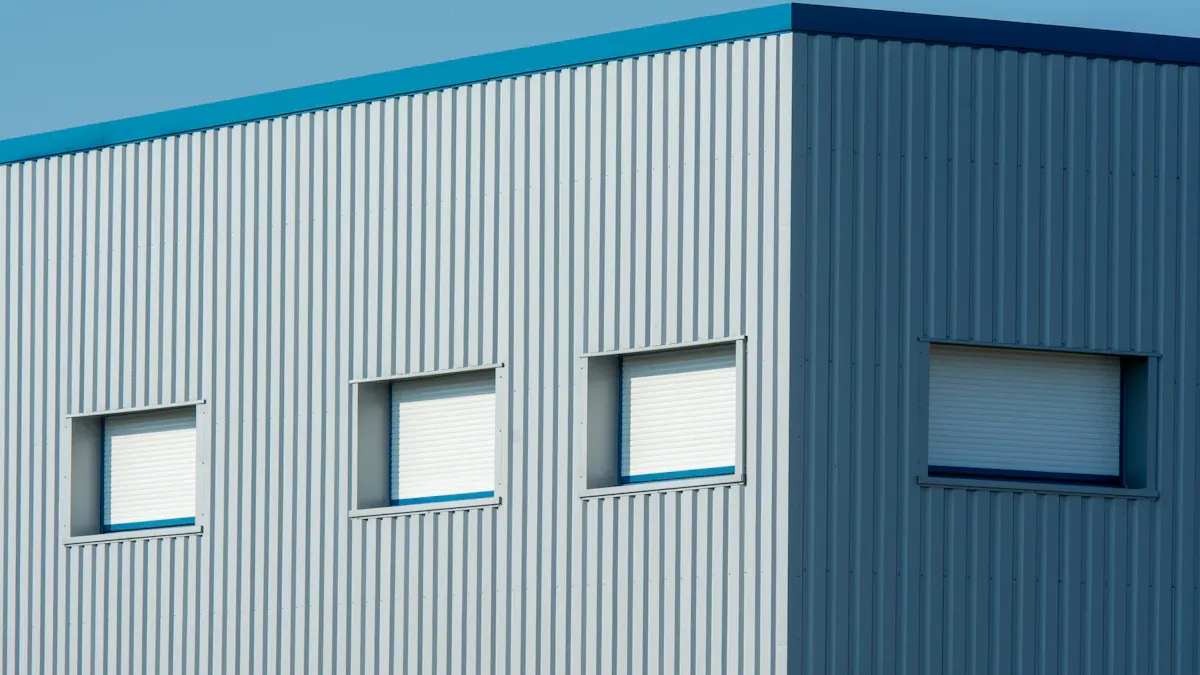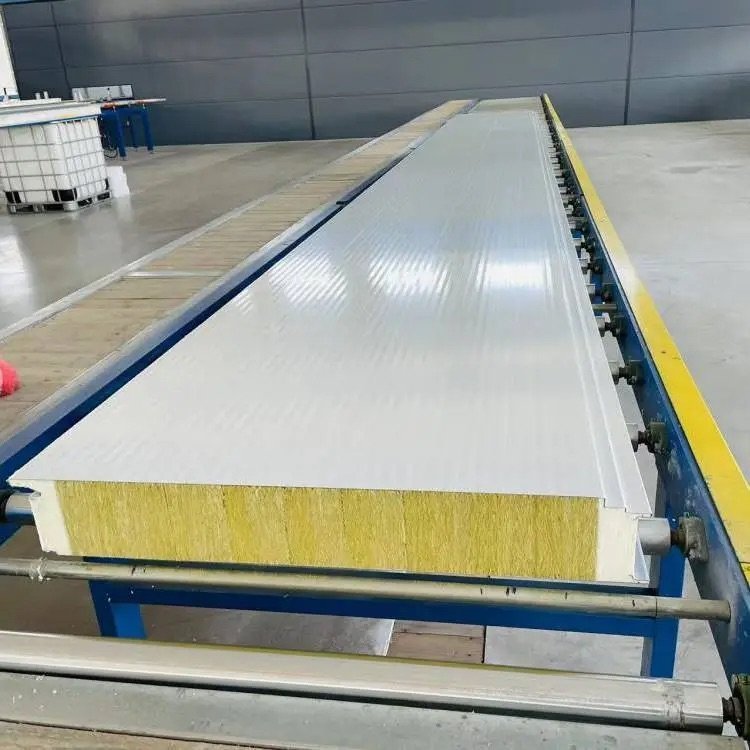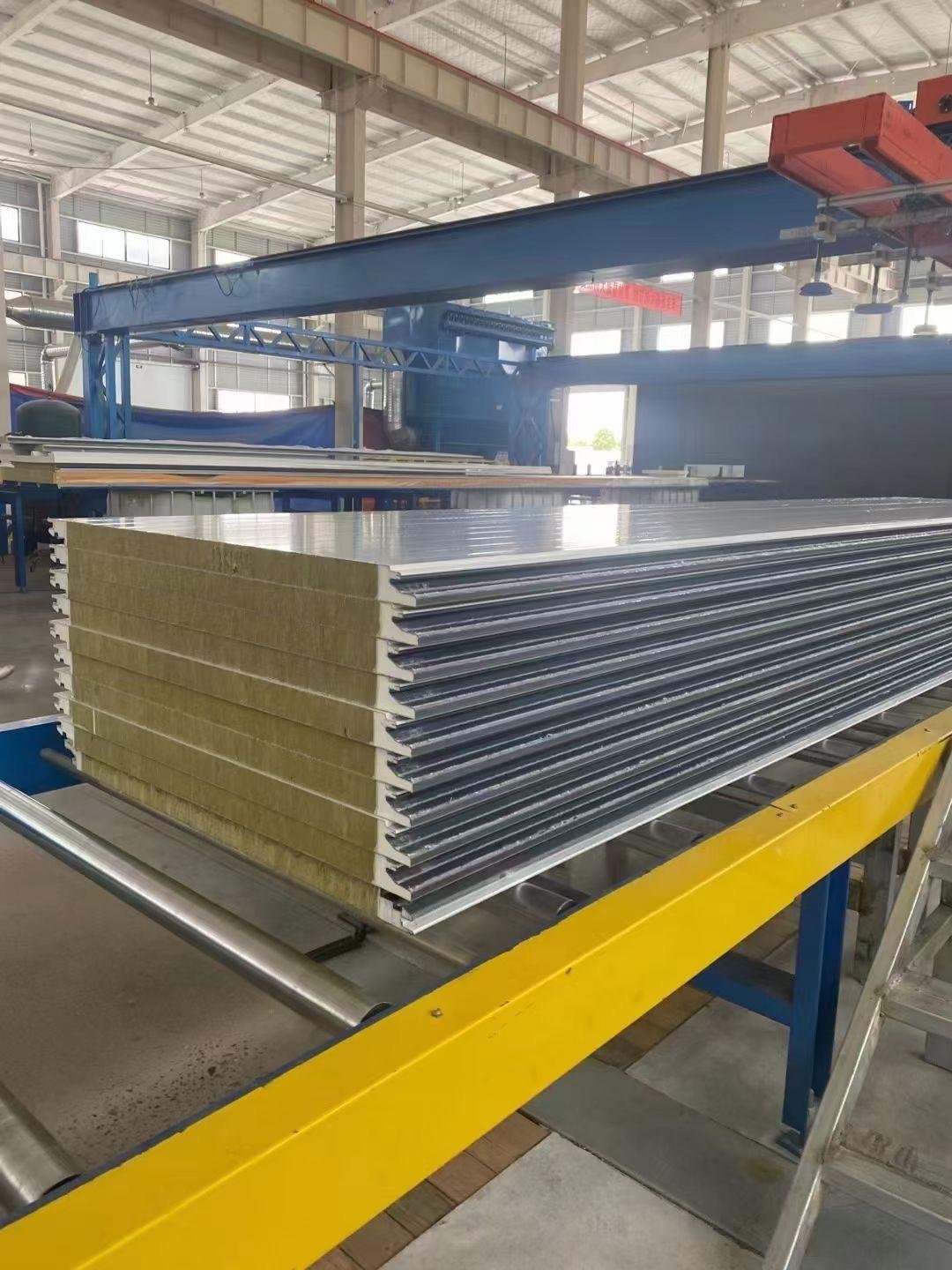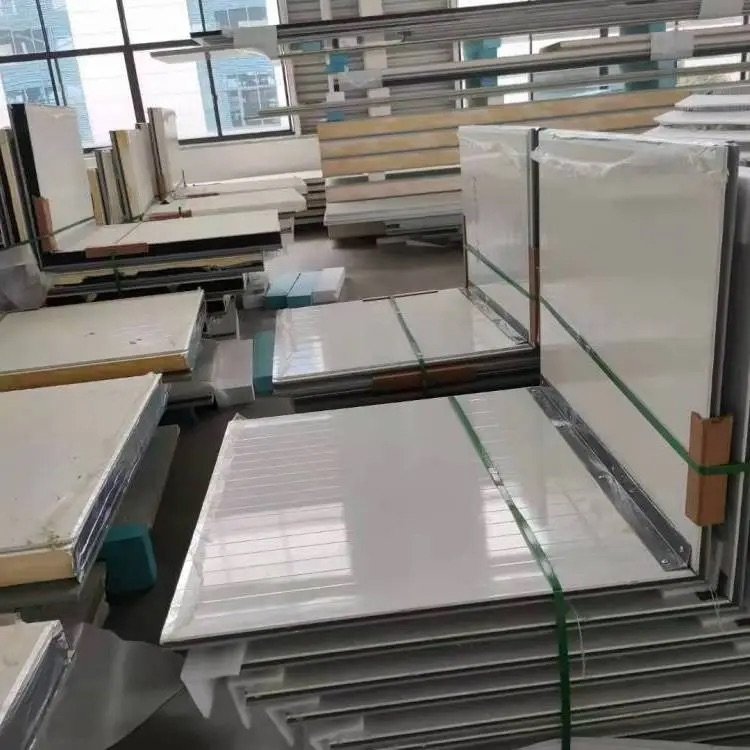
Sandwich panels are special materials with two hard outer layers. Inside, they have a light core. This design makes them strong but not heavy. They are used in buildings, vehicles, and factories. These panels are popular because they work well and last long.
An important property of a sandwich panel is its insulation. For example, panels with a polyurethane core have a U-value of 0.02 W/m²K. This means they keep heat from moving through. This helps save energy. In the 123 Manhattan Avenue building, heating and cooling costs dropped by 30%. Using these panels saves energy and cuts CO2 emissions. This helps protect the environment.
Key Takeaways
Sandwich panels have tough outer layers and a soft middle, making them strong but light.
Keeping heat in or out saves energy and cuts heating and cooling bills by up to 30%.
Proper insulation stops moisture buildup, keeping buildings safe from mold and harm.
Well-insulated sandwich panels help the environment by using less energy and lowering pollution.
Picking the best core material, like polyurethane, improves insulation and works better overall.
Why Thermal Insulation is the Most Important Property

The Role of Thermal Insulation in Sandwich Panels
Reducing Heat Transfer for Energy Efficiency
Thermal insulation is key in sandwich panels. It lowers heat transfer. This keeps indoor spaces cozy, no matter the weather outside. For example, sandwich panels with polyurethane cores have a U-value of 0.02 W/m²K. This is much better than older materials. A low U-value means less heat escapes in winter. It also means less heat enters in summer. This saves energy and cuts heating or cooling costs. For instance, the 123 Manhattan Avenue building in New York saved 30% on energy bills after using these panels.
Preventing Condensation in Humid Environments
In humid places, condensation can cause mold and damage. Sandwich panels with good thermal resistance stop this problem. They keep their surfaces at steady temperatures. This reduces moisture buildup. For example, panels with foamed glass cores offer strong insulation. They help buildings stay durable and healthier inside.
Applications Where Thermal Insulation is Critical
Cold Storage and Refrigeration
Cold storage needs good insulation to stay cool. Sandwich panels with polyurethane or XPS cores work best here. They save energy and keep goods fresh. This also lowers running costs. Among core materials, polyurethane cores perform the best. They have an R-value of 50, which is excellent.
Residential and Commercial Buildings
Homes and offices need insulation for energy efficiency. Sandwich panels help keep indoor spaces comfortable. They reduce the need for extra heating or cooling. This lowers energy bills and supports eco-friendly living. Using well-insulated panels makes homes and workplaces greener.
Consequences of Poor Thermal Insulation
Increased Energy Costs
Bad insulation in panels wastes energy. Without good thermal resistance, heat moves more easily. HVAC systems must work harder, raising utility bills. For example, panels with a U-value of 0.06 W/m²K are less efficient. Polyurethane cores are much better for saving energy.
Reduced Comfort and Environmental Impact
Poor insulation makes indoor spaces less comfortable. Temperatures can change too much, making it unpleasant. It also increases CO2 emissions due to higher energy use. Choosing panels with great insulation improves comfort. It also helps the environment by cutting energy waste.
How Sandwich Panels Keep Heat In or Out
Core Materials and Their Insulating Features
Polyurethane Foam for Better Heat Control
Polyurethane foam is great for stopping heat movement. It keeps heat from passing through, saving energy. This foam is used in panels to keep indoor spaces comfortable. It is also strong and stable, so panels last longer.
Mineral Wool for Heat and Fire Safety
Mineral wool is another good core material. It stops heat and resists fire, making it safer. This material also makes panels stronger. Mineral wool is often used in buildings where fire safety matters most.
Making Panels Work Better
Thicker Cores for Stronger Insulation
The middle layer’s thickness helps stop heat better. Thicker cores block heat more effectively. Manufacturers design cores to balance insulation, weight, and strength. This keeps panels light but tough.
Sealing to Stop Heat Leaks
Heat can escape through gaps in panels. To fix this, manufacturers seal panels carefully. Good sealing keeps heat from leaking out. This makes panels work well everywhere.
Rules for Insulation in Panels
Following Energy-Saving Laws
Laws require panels to meet energy-saving rules. Panels must insulate well to save energy and cut costs. Meeting these rules helps lower utility bills.
Testing for Reliable Panels
Panels are tested to ensure they insulate properly. Tests check their materials and heat-blocking ability. This ensures panels meet safety and insulation standards.
Comparing Thermal Insulation to Other Key Properties
Structural Strength vs. Thermal Insulation
Importance of Load-Bearing Capacity
Structural strength helps sandwich panels hold heavy weights. This keeps them from bending or breaking under pressure. Panels with strong bending capacity are lightweight but durable. They work well for roofs, walls, and floors. Strength keeps panels sturdy but doesn’t save energy.
Why Insulation is Essential for Energy Efficiency
Thermal insulation keeps indoor spaces warm or cool. It reduces heat transfer, saving energy and cutting costs. Strength supports the panel’s structure, but insulation adds comfort. Both are important, but insulation is needed everywhere.
Fire Resistance vs. Thermal Insulation
Role of Fire Safety in Specific Applications
Fire resistance is crucial in places where safety matters most. Panels with fire-resistant cores slow fire spread and reduce smoke. For example, mineral wool cores improve fire safety and stay strong. These panels are great for buildings with strict fire rules.
Why Insulation is a Universal Requirement
Fire resistance is important in certain cases, but insulation is always needed. It saves energy and keeps spaces comfortable in all settings. Panels with good insulation work well in many industries. While fire safety is situational, insulation is always essential.
Acoustic Insulation vs. Thermal Insulation
Noise Reduction in Specialized Uses
Acoustic insulation lowers noise, which is useful in some places. It’s helpful in offices, theaters, or homes needing quiet spaces. Panels made for soundproofing block noise effectively.
Why Insulation is Critical Across All Applications
Acoustic insulation is useful in specific cases, but thermal insulation helps everywhere. It controls temperature and saves energy in all uses. Whether for cold storage or homes, insulation is always a top priority.
The Impact of Thermal Insulation on Industry Applications

Construction Industry
Energy-Saving Building Covers
Thermal insulation in sandwich panels is important for construction. These panels help make buildings energy-efficient by stopping heat transfer. This lowers the need for heating or cooling systems, saving money. Sandwich panels are light and easy to install, speeding up projects. For example, panels with polyurethane cores work well in homes and offices. They provide strong insulation while staying sturdy.
Eco-Friendly Housing Options
For green housing, sandwich panels are a great choice. They improve energy use and lower the carbon footprint of buildings. Their insulation keeps indoor spaces comfortable, even in tough weather. Using these panels supports eco-friendly building and saves energy costs over time.
Cold Storage and Refrigeration
Keeping Temperatures Low Effectively
Cold storage needs good insulation to stay cold. Sandwich panels with high R-values are perfect for this job. They block heat, keeping stored items fresh and safe. These panels are also light, making them easier to install and saving labor costs.
Cutting Energy Use in Storage
Energy efficiency is key in cold storage. Bad insulation uses more energy and raises costs. Sandwich panels with advanced insulation reduce energy use. They stop heat transfer, making them great for refrigeration and storage.
Transportation Industry
Insulated Panels for Cool Vehicles
Refrigerated trucks need good insulation to keep goods safe. Sandwich panels are great for keeping temperatures steady inside. They are light, which helps save fuel and lowers costs.
Improving Comfort in Passenger Vehicles
Thermal insulation makes passenger vehicles more comfortable. It keeps the cabin cool in summer and warm in winter. Lightweight panels also reduce vehicle weight, improving fuel use. This makes them a smart choice for modern vehicle designs.
Thermal insulation is the most important feature of a sandwich panel. It saves energy, keeps spaces comfortable, and helps the environment. These panels work well in buildings, vehicles, and cold storage. Their insulation makes them efficient and eco-friendly. A well-insulated panel lowers energy bills and improves indoor comfort. Picking the right panels helps the planet and gives lasting benefits.
Check out sandwich panels made for your needs to save energy and stay comfortable.
FAQ
What is a sandwich panel?
A sandwich panel has two hard outer layers and a light middle. It is strong and insulates well, making it great for buildings, vehicles, and factories.
How does thermal insulation in composite sandwich panels save energy?
Thermal insulation stops heat from moving in or out. This keeps spaces cozy and reduces heating or cooling needs. It saves energy and lowers bills.
What are the common core materials used in standard sandwich panels?
Polyurethane foam and mineral wool are common cores. Polyurethane insulates well, while mineral wool resists fire and lasts long.
Can sandwich panels be used in cold storage facilities?
Yes, sandwich panels work well in cold storage. They keep temperatures low, protect goods, and use less energy.
Are composite sandwich panels eco-friendly?
Yes, they save energy and cut carbon emissions. Their light design also reduces waste during setup, helping the environment.







